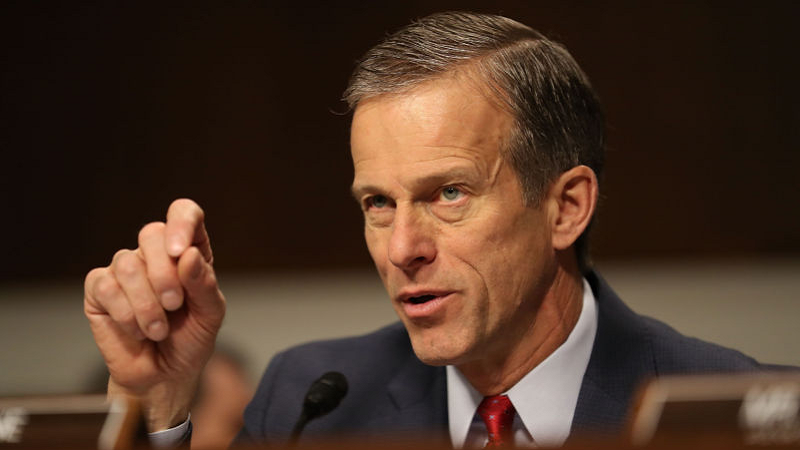
Sen. John Thune, R-S.D., introduced the Network Security Trade Act on March 5 directing trade officials to make supply chain security a key objective in their telecommunications trade discussions, in the midst of formal trade talks with the United Kingdom and other allies on the matter.
The Network Security Trade Act amends the 2015 Trade Promotion Authority to include a telecommunications security negotiating objective. If signed into law, it would require the executive branch to ensure that tech used to create telecom infrastructure are not compromised by a malicious actor. It also bars “unfair trade practices of suppliers of communications equipment that are owned, controlled, or supported by a foreign government.”
“This legislation would ensure the security of equipment and technology that create the global communications infrastructure are front and center in our trade negotiations, because you can’t have free trade if the global digital infrastructure is compromised,” Thune said about the legislation.
While the legislation does not target Huawei and ZTE by name, Thune did refer to introducing the Network Security Trade Act during a hearing last week on the Chinese 5G companies. Thune had said that communications supply chain security should become a part of the U.S. trade strategy and James Lewis, director of the technology policy program at the Center for Strategic and International Studies, called the idea “a great step forward.”
Co-sponsor of the bill Sen. Mark Warner, D-Va., added, “While we’ve seen multiple administrations exhort foreign partners not to use Huawei, we’ve continually failed to see a long-term, sustained, multi-lateral strategy to safeguard the global telecommunications market and foster innovative, competitively priced alternatives. Our digital trade agenda must emphasize the need for secure communications networks, built on fair competition, and this legislation helps accomplish that,”
The legislation has two additional bipartisan cosponsors – Sens. Debbie Stabenow, D-Mich., and Deb Fischer, R-Neb. – and does not appear to have a companion bill in the House. The bill has been referred to the Senate Committee on Finance.
